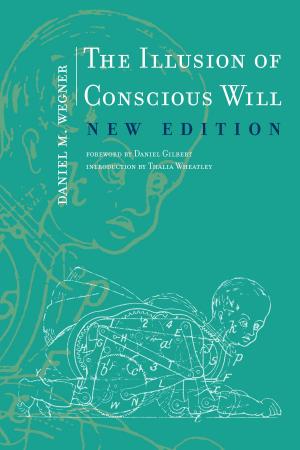The Radical Fool of Capitalism
On Jeremy Bentham, the Panopticon, and the Auto-Icon
Nonfiction, Social & Cultural Studies, Political Science, Politics, Economic Conditions, History & Theory, Religion & Spirituality, Philosophy| Author: | Christian Welzbacher | ISBN: | 9780262347143 |
| Publisher: | The MIT Press | Publication: | April 13, 2018 |
| Imprint: | The MIT Press | Language: | English |
| Author: | Christian Welzbacher |
| ISBN: | 9780262347143 |
| Publisher: | The MIT Press |
| Publication: | April 13, 2018 |
| Imprint: | The MIT Press |
| Language: | English |
A fresh interpretation of Jeremy Bentham, finding that his “radical foolery” embodied a social ethics that was revolutionary for its time.
Jeremy Bentham (1748–1832) is best remembered today as the founder of utilitarianism (a philosophy infamously abused by the Victorians) and the conceiver of the Panopticon, the circular prison house in which all prisoners could be seen by an unseen observer—later seized upon by Michel Foucault as the apotheosis of the neoliberal control society. In this volume in the Untimely Meditation series, Christian Welzbacher offers a new interpretation of Bentham, arguing that his “radical foolery” (paraphrasing Goethe's characterization of Bentham) actually embodied a social ethics that was new for its time and demands proper historical contextualization rather than retroactive analysis from the vantage point of late capitalism. Welzbacher provides just such an analysis, offering an account of the two great utilitarian projects that occupied Bentham all his life: the Panopticon and the Auto-Icon.
Welzbacher rescues the Panopticon from the misapprehensions of Foucault, Orwell, and Lacan, arguing that Bentham saw the Panopticon as a pedagogical instrument incorporating the tenets of reason; construction and function, plan and influence, architecture and politics are brought into alignment. Bentham extolled the discovery in words that could easily be ascribed to Le Corbusier, Bruno Taut, or any other modernist architect. The Auto-Icon expressed Bentham's theories that the dead should benefit later generations; these theories were effectively sealed when Bentham decided to have his body preserved and put on display. (It can be seen today in a cabinet at University College London.) He also donated his inner organs to science—a practice outlawed at the time—and posthumously stage-managed his own ceremonial autopsy.
Welzbacher reveals a Bentham who raised questions that feel familiar and current, invoking topoi that would come to define the modern era and that reverberate to this day.
A fresh interpretation of Jeremy Bentham, finding that his “radical foolery” embodied a social ethics that was revolutionary for its time.
Jeremy Bentham (1748–1832) is best remembered today as the founder of utilitarianism (a philosophy infamously abused by the Victorians) and the conceiver of the Panopticon, the circular prison house in which all prisoners could be seen by an unseen observer—later seized upon by Michel Foucault as the apotheosis of the neoliberal control society. In this volume in the Untimely Meditation series, Christian Welzbacher offers a new interpretation of Bentham, arguing that his “radical foolery” (paraphrasing Goethe's characterization of Bentham) actually embodied a social ethics that was new for its time and demands proper historical contextualization rather than retroactive analysis from the vantage point of late capitalism. Welzbacher provides just such an analysis, offering an account of the two great utilitarian projects that occupied Bentham all his life: the Panopticon and the Auto-Icon.
Welzbacher rescues the Panopticon from the misapprehensions of Foucault, Orwell, and Lacan, arguing that Bentham saw the Panopticon as a pedagogical instrument incorporating the tenets of reason; construction and function, plan and influence, architecture and politics are brought into alignment. Bentham extolled the discovery in words that could easily be ascribed to Le Corbusier, Bruno Taut, or any other modernist architect. The Auto-Icon expressed Bentham's theories that the dead should benefit later generations; these theories were effectively sealed when Bentham decided to have his body preserved and put on display. (It can be seen today in a cabinet at University College London.) He also donated his inner organs to science—a practice outlawed at the time—and posthumously stage-managed his own ceremonial autopsy.
Welzbacher reveals a Bentham who raised questions that feel familiar and current, invoking topoi that would come to define the modern era and that reverberate to this day.















